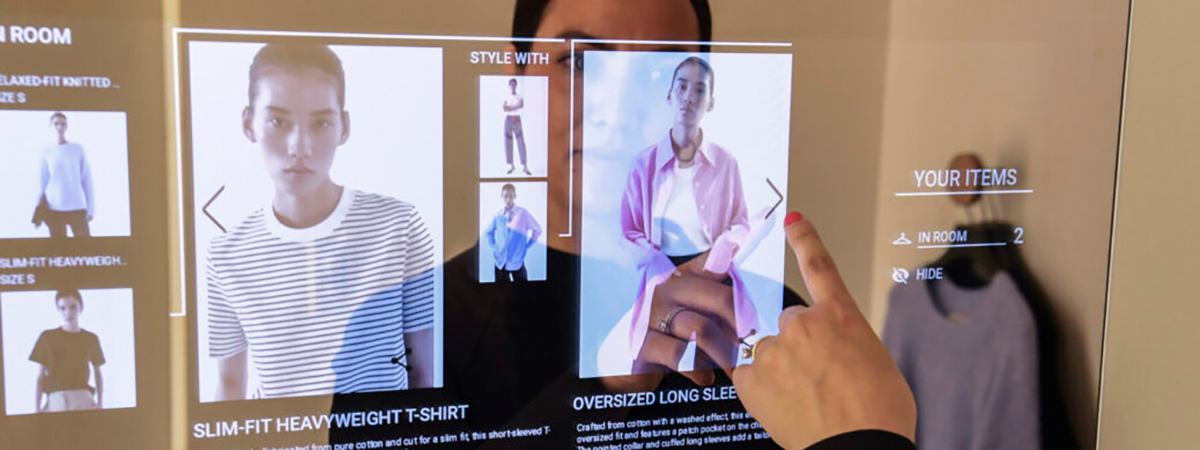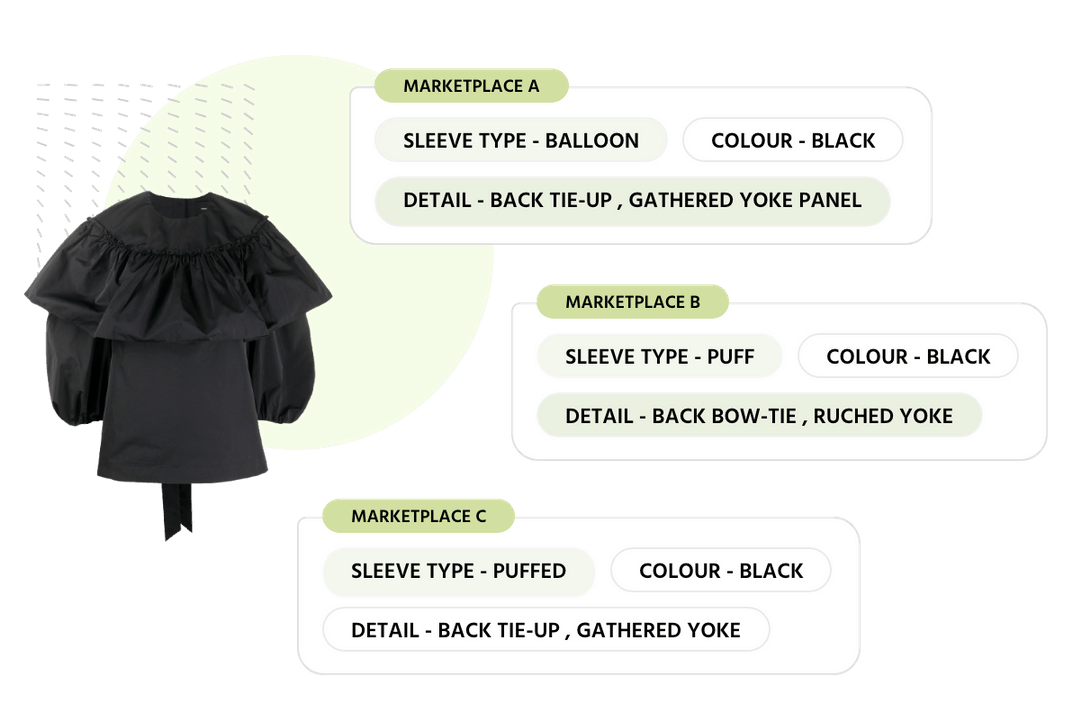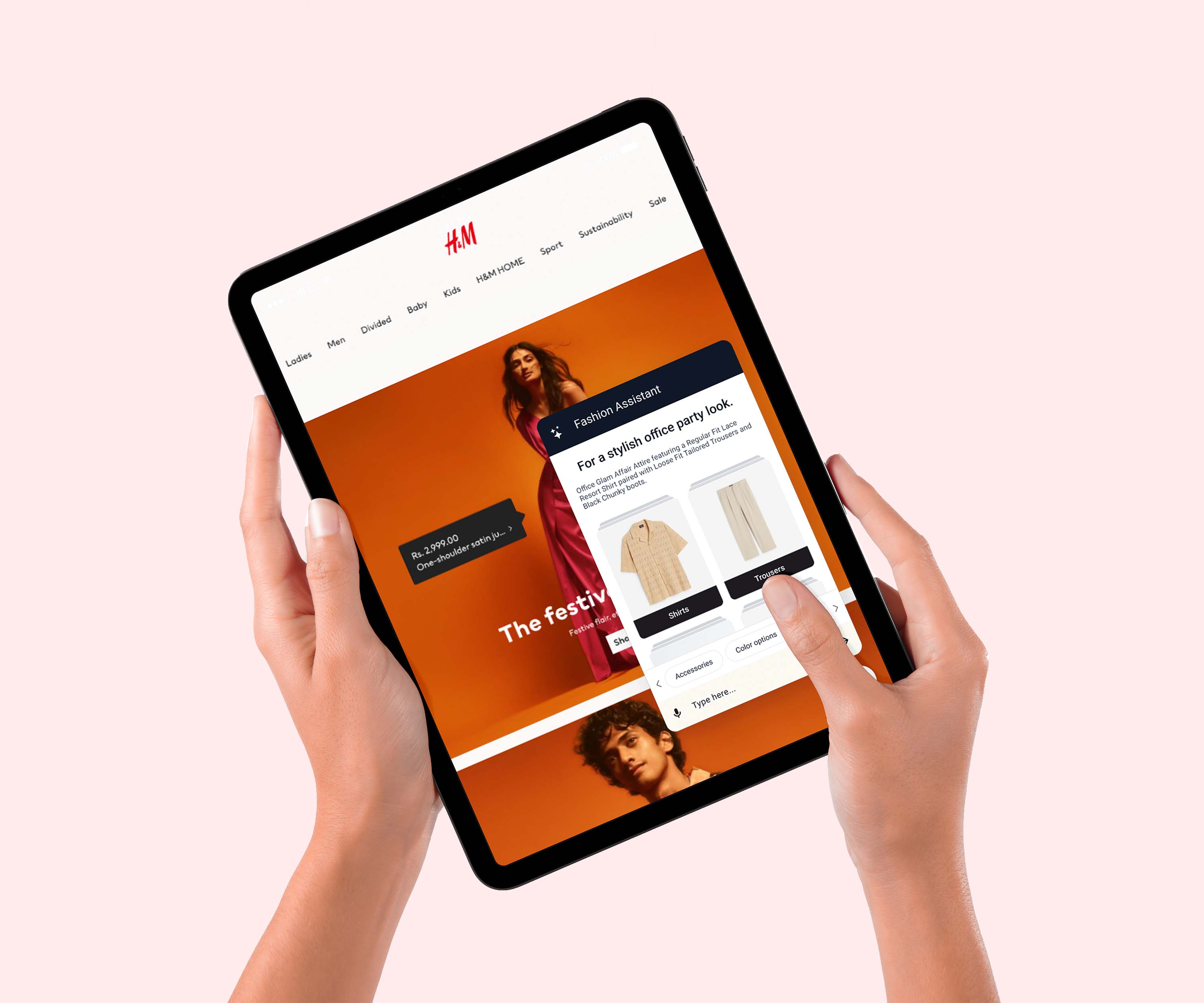
10 areas where AI is revolutionizing fashion retail
In the dynamic world of fashion retail, staying ahead of the curve is essential for success. Today, artificial intelligence (AI) is reshaping the industry by empowering retailers to make data-driven decisions, reduce revenue losses, eliminate stockouts, and gain a deeper understanding of customer behavior. This transformative approach is giving birth to the concept of the "Intelligence Store."
In this blog, we'll delve into the role of AI in fashion retail landscape and explore the various ways in which it is transforming the way fashion retailers do business.
1. Using AI for Strategic Decision-Making:
AI-powered solutions are enabling fashion retailers to gain valuable, data-driven insights into consumer behavior, market trends, and product performance. This data equips them with a better understanding of what sells, what doesn't, and why, enabling informed decision-making regarding inventory, marketing strategies, trend prediction and product development.
2. Using AI for Optimized Inventory Management:
One of the most significant challenges in the retail world is managing inventory effectively. Stockouts can lead to lost sales opportunities, while excess inventory ties up capital. AI-driven systems use predictive analytics to optimize inventory levels in real-time, ensuring that products are available when customers want them. This not only increases sales but also reduces costs associated with unsold items. This allows professionals to allocate resources more efficiently.

3. Personalized Shopping Experiences with AI- Driven Stylebots:
AI can create highly personalized shopping experiences. Using customer data, it can offer tailored product recommendations, suggest outfits, and even anticipate the customer's needs. Virtual styling assistants can have natural conversations with customers and help them buy products that suit their specific requirements. This level of personalization enhances customer satisfaction and loyalty, ultimately driving revenue growth and enhancing brand perception.
4. Visual Search and Virtual Try-On:
Visual search and virtual try-on technologies are revolutionizing the online shopping experience. With the help of AI, customers can upload a picture or use their device's camera to find products similar to what they see in the real world. Virtual try-on allows customers to see how clothing will look on them without ever setting foot in a physical store. These technologies bridge the gap between online and offline shopping, making the shopping process more interactive and engaging.

5. Using AI for Fraud Detection and Loss Prevention:
AI is not only valuable for customer-facing aspects but also for behind-the-scenes operations. It aids in fraud detection by identifying irregular patterns in transactions and can even help prevent theft by monitoring in-store activities through cameras and sensors.
6. Using AI for Demand Forecasting :
Understanding and predicting customer demand is a fundamental aspect of fashion retail. AI can analyze historical data and external factors, such as weather, social trends, and even global events, to make accurate demand forecasts. Retailers can then adjust their inventory and marketing strategies accordingly.
7. Supply Chain Optimization:
Efficient supply chain management is crucial for the fashion industry. AI can optimize the supply chain by predicting shipping delays, optimizing transportation costs, and ensuring timely deliveries. This streamlining of the supply chain enhances efficiency and reduces costs.
8.Customer Support Automation :
Managing customer's issues efficiently and in a timely manner is critical to building loyalty. However, a lot of the queries are routine and these can be automated using AI. Now with Large Language models (LLM’s) like ChatGPT, giving us the ability to have natural conversations. It is only natural for companies to use AI to automate a significant part of this role.

9. Photo Shoot Automations :
AI is even replacing the need for a product photo shoot in a professional studio. AI takes an ordinary photograph and changes the resolutions, lighting, shadow etc and converts it into a studio-quality photo. And what is more, is it can place these products in multiple locales by changing the backgrounds. Whether they are eCommerce product shots or lifestyle shots for marketing and social media you can create them effortlessly using AI.
10. Enhanced Product descriptions using AI :
Writing product descriptions used to be manual or a templatised process. Writing them manually required talented creative writers and handling scale becomes a challenge. If we go for a templatised version they tend to be not so creative and often repetitive. Now you can harness Generative AI in a controlled environment to write creative descriptions that are also SEO optimised.

In conclusion, the integration of AI in fashion retail is revolutionizing the industry. Retailers are embracing AI technologies to gain a competitive edge, minimize losses, enhance customer experiences, and improve operational efficiency. The concept of the "Intelligence Store" is reshaping the way fashion retail businesses operate, enabling them to stay in tune with ever-changing consumer preferences and market dynamics.
As the retail landscape continues to evolve, those who harness the power of AI will be better positioned to thrive in this dynamic and highly competitive industry. The future of fashion retail is intelligent, data-driven, and customer-centric, and AI is at the forefront of this transformation.

Importance of Product Taxonomy: Role of AI in Automating & Improving Taxonomies




